Mounties Should Probe Criminal Obstruction in Bill Blair’s Office Warrant Delay, Says Former Senior CSIS and RCMP Officer
54 days created a big window for them to realize who was on this list, whose communications might be captured, and to go into damage control mode: Alan Treddenick, CSIS Veteran
OTTAWA — Testimony from senior ministers and aides in Justin Trudeau's administration at the Hogue Commission—marked by contradictions and conspicuous lapses in memory—has sparked calls for a criminal obstruction investigation into the months-long delay of a warrant targeting Michael Chan, a prominent Liberal Party fundraiser. Alan Treddenick, a former senior officer in Canadian police and intelligence services with extensive experience in domestic and international operations, warns the delay raises critical questions: Were party officials connected to the explosive warrant tipped off, as Public Safety Minister Bill Blair’s staff weighed its political fallout ahead of the Liberal Party’s election campaign?
The inquiry revealed that Blair and his top aide were briefed by CSIS around March 2021 on the pending warrant for Michael Chan. The document, which outlined a list of individuals potentially in communication with Chan, remained in Blair’s office for at least 54 days before it was approved. The prolonged delay constrained CSIS’s ability to act, leaving only about two months before the September 2021 federal election.
“The 54 days created a big window of opportunity for them to realize who was on this list, whose communications might be captured, and to go into damage control mode,” Treddenick said in an interview. “In my opinion, that would have meant quietly advising people on the list to be cautious about communications with certain individuals.”
Another expert, Duff Conacher, an ethics and transparency activist, calls the case involving Bill Blair and his chief of staff, Zita Astravas, perhaps the most serious conflict of interest matter he has ever seen in Ottawa.
“Both Blair and Astravas should have recused themselves,” Conacher said in an interview. “If a warrant targets someone affiliated with the politician’s party, there’s a clear risk of a cover-up, delay, or actions that protect the warrant’s subject.”
Emphasizing the stakes of the delay, a national security source—who cannot be identified due to ongoing leak investigations by the RCMP and CSIS—told The Bureau that CSIS officers had allegedly sought to plant surveillance devices inside a mansion Michael Chan was completing in Markham.
According to the source, CSIS officers were pushing to secure a national security warrant for Chan to allow such measures, but delays in 2021 left them frustrated. They noted that the opportunity to covertly install recorders inside Chan’s home during its construction had already passed.
In his testimony Chan acknowledged fundraising and campaigning for over 40 federal and provincial candidates, including prominent Liberal leaders such as Justin Trudeau, Paul Martin, Michael Ignatieff, Sheila Copps and John McCallum. He has vehemently denied any involvement in Chinese election interference and has publicly called himself a victim of CSIS investigations and media leaks.
Blair and Astravas strongly rejected allegations of inappropriate handling of the warrant during their testimony. Conservative MP Michael Chong’s lawyer, Gib van Ert, pressed Astravas, suggesting, “The warrant involved high-ranking members of your party and people you had known for years—isn’t that why you wanted to delay it?”
“That is false. Minister Blair has approved every warrant put before him,” Astravas replied.
Van Ert countered, “But he didn’t get it for 54 days, because of you.”
“Your accusation is false,” Astravas retorted.
The Bureau asked Treddenick for his assessment of the explosive evidence, focusing on the unprecedented delay in warrant approval and the testimony highlighting Blair’s chief of staff’s pointed interest in the so-called Van Weenen list.
This interview has been lightly edited for brevity and clarity.
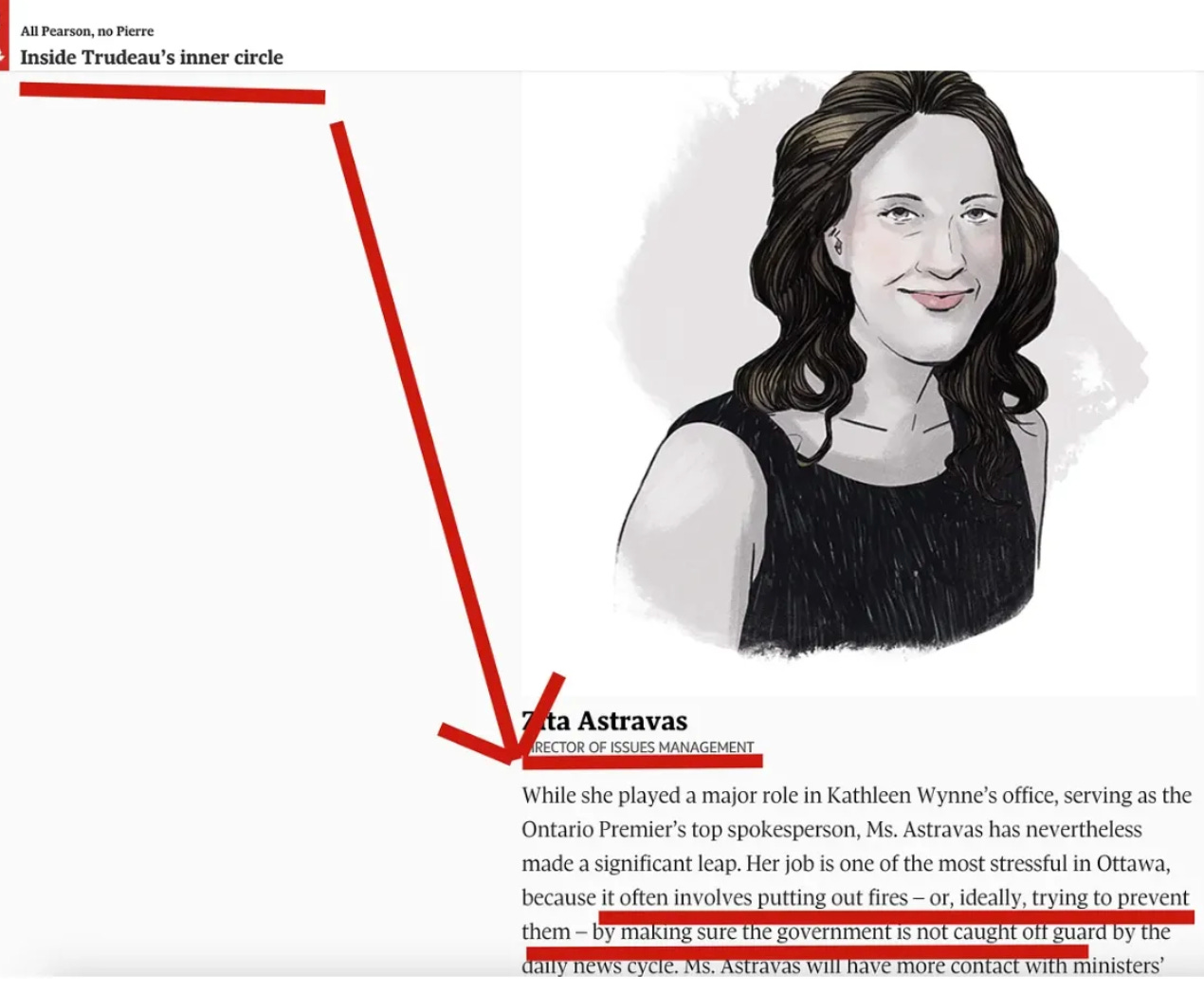
Alan Treddenick:
“Let me start by saying I’m astonished that others in the media haven’t picked up or devoted any time to this issue. It made a bit of a splash during the commission, but then it seemed to disappear.
From Bill Blair to his chief of staff, to Katie Telford, the Prime Minister’s chief of staff, even the Prime Minister’s testimony. There were memory lapses, confusion about responsibility, decision-making, and who had access to the document. This is unprecedented in my 32 years with the RCMP and CSIS—it’s unprecedented for a warrant application to sit in the minister’s office for 54 days. That’s one point.
Two, the Van Weenen lists aren’t new. They started within criminal jurisprudence and were adopted into National Security and CSIS Act warrant applications to give justices a broader picture of who might be captured in a target’s interception.
In this case, the 54-day delay is concerning—one, because as I said, it’s unprecedented; two, because of the number of people who would have had access to this in the minister’s office; and three, because during that 54-day period, that document didn’t just sit in somebody’s basket.
Typically, warrant applications with Van Weenen lists go through without issue. But this one raised questions, and Blair’s history as a Toronto police officer doesn’t suggest he would have been involved in stalling it. I put this down to his chief of staff—who is not incompetent; she’s a very savvy political operative, close to Trudeau’s chief of staff Katie Telford, from their Ontario Liberal Party days. So my concern in this whole thing is that the 54 days allowed a big window of opportunity for them once they realized who was on this list—whose communications could be captured when communicating with the target. And the damage control mode, in my opinion, would've been quiet conversations somehow with people that are on the Van Weenen list. To say be careful when you’re talking or communicating with so-and-so, because you never know who’s listening.
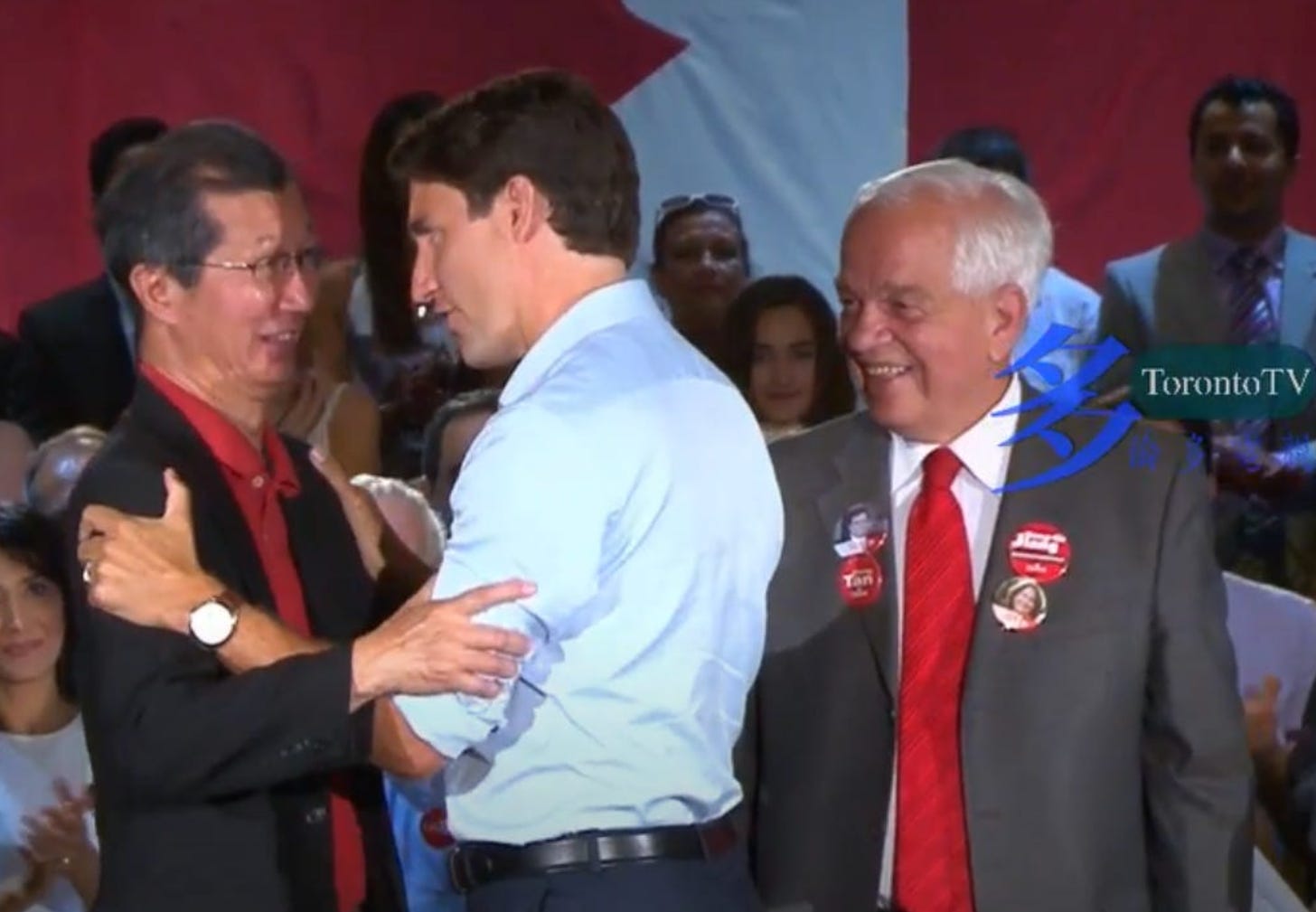
The Van Weenen list was mentioned briefly in the Commission hearings, but I haven’t seen anyone really delve into it. When the Commission releases its final report, will it be part of the classified reporting? I don’t know. Have they asked people on the list to testify? I don’t know. It definitely needs some sort of review.”
The Bureau:
Based on my understanding, high-level sources informed me from the start that this investigation related to CSIS’s belief that the warrant’s target could influence the Prime Minister’s Office regarding the replacement of a sitting MP. My sources say this could be the most concerning counterintelligence threat for CSIS at that time due to the potential influence on the Prime Minister and his staff from a key party fundraiser to fix an important riding seat. Could you comment on that?
Alan Treddenick:
“If that’s accurate, it certainly would’ve been included in the affidavit to justify the powers for CSIS to further the investigation. I don’t know the specifics, and I haven’t seen the affidavit, nor do I want to, but from what you’re telling me, it’s plausible that all of that would’ve been in the affidavit.”
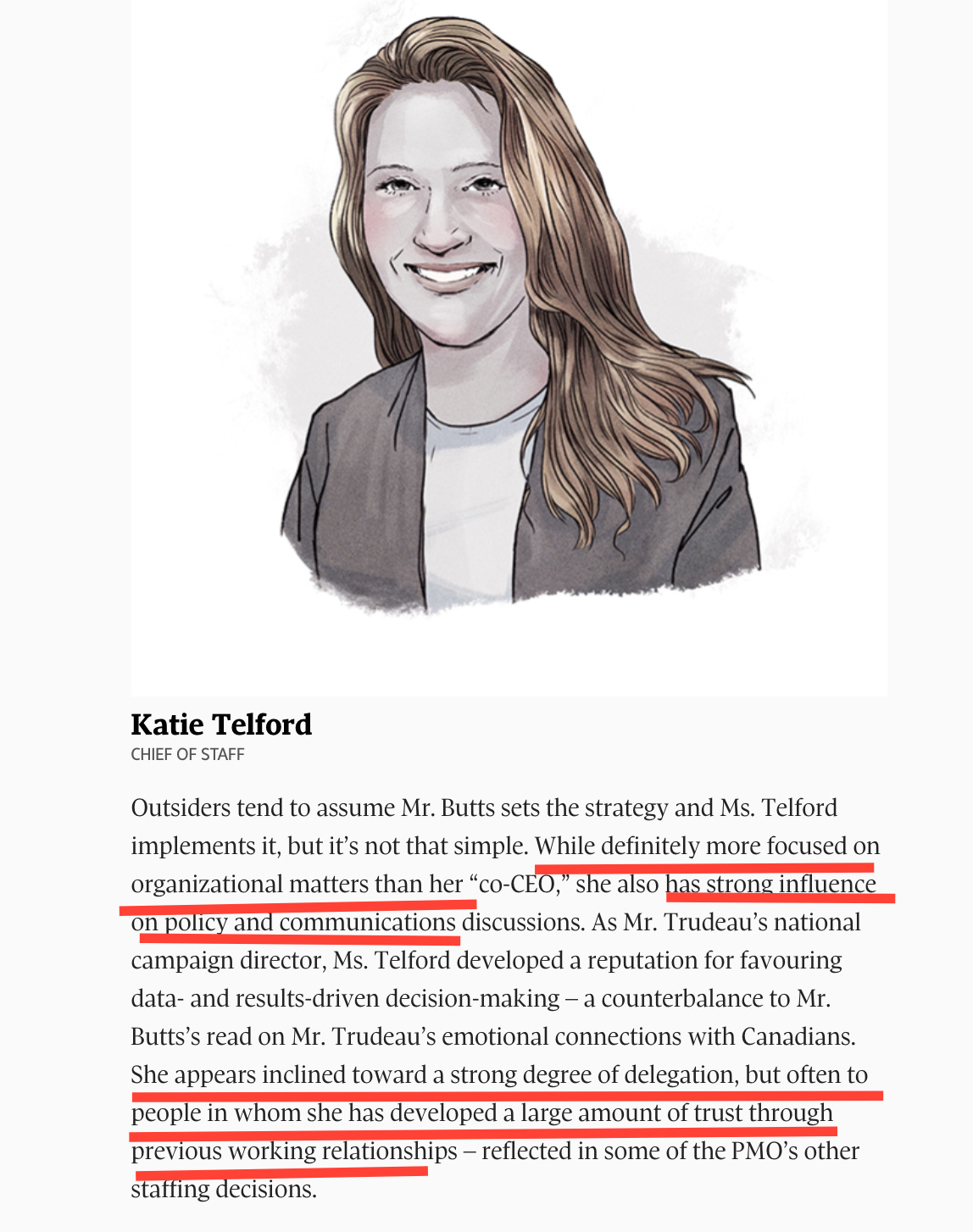
The Bureau:
Lawyers seemed to focus on the Van Weenen list and the chief of staff’s unprecedented interest in it. This points to concerns that people on the list could have been quietly alerted to be cautious, doesn’t it?
Alan Treddenick:
“Exactly. That 54 days provided an unprecedented window. Why would it have taken that long? Blair’s chief of staff is no dummy—she’s savvy and has likely seen other applications with Van Weenen lists that didn’t raise issues. This one took 54 days before Blair signed it. So what happened in that time? I suspect there was damage control behind the scenes.”
The Bureau:
What would you say to the layperson who sees this as potential obstruction? Even The Globe and Mail wrote that time was passing with an election approaching in September 2021.
Alan Treddenick:
“Regardless of the election, the 54-day period needs examination from a criminal point of view: obstruction, breach of trust, and possibly infractions of the Security of Information Act. From a criminal perspective, that’s one aspect—but from an intelligence perspective, the last thing we as an intelligence service would have wanted was for the people on the Van Weenen list to be advised that Target X is under surveillance. If they were warned to 'be careful with your communications,' it would likely result in a change in behavior, which could compromise our operations.
That’s why it’s very troubling to me that the 54-day window hasn’t been examined. Start with a criminal investigation: conduct interviews with everyone on the Van Weenen list and anyone who had access to the document from the moment it entered the minister’s office. Obtain judicial production orders for all communications to and from the minister’s office and staff, and track where they went. Look for any connections to individuals on the Van Weenen list—I suspect there will be, especially since the list likely included some prominent individuals.
If there was communication between someone on the list and the minister’s office, or a staff member, shortly after the chief of staff raised concerns about the Van Weenen list, that would raise a red flag. I’d then dig deeper into the nature of that communication. Did the communication or behavior of one person toward another change? If it did, it would suggest that someone on the list was warned.”
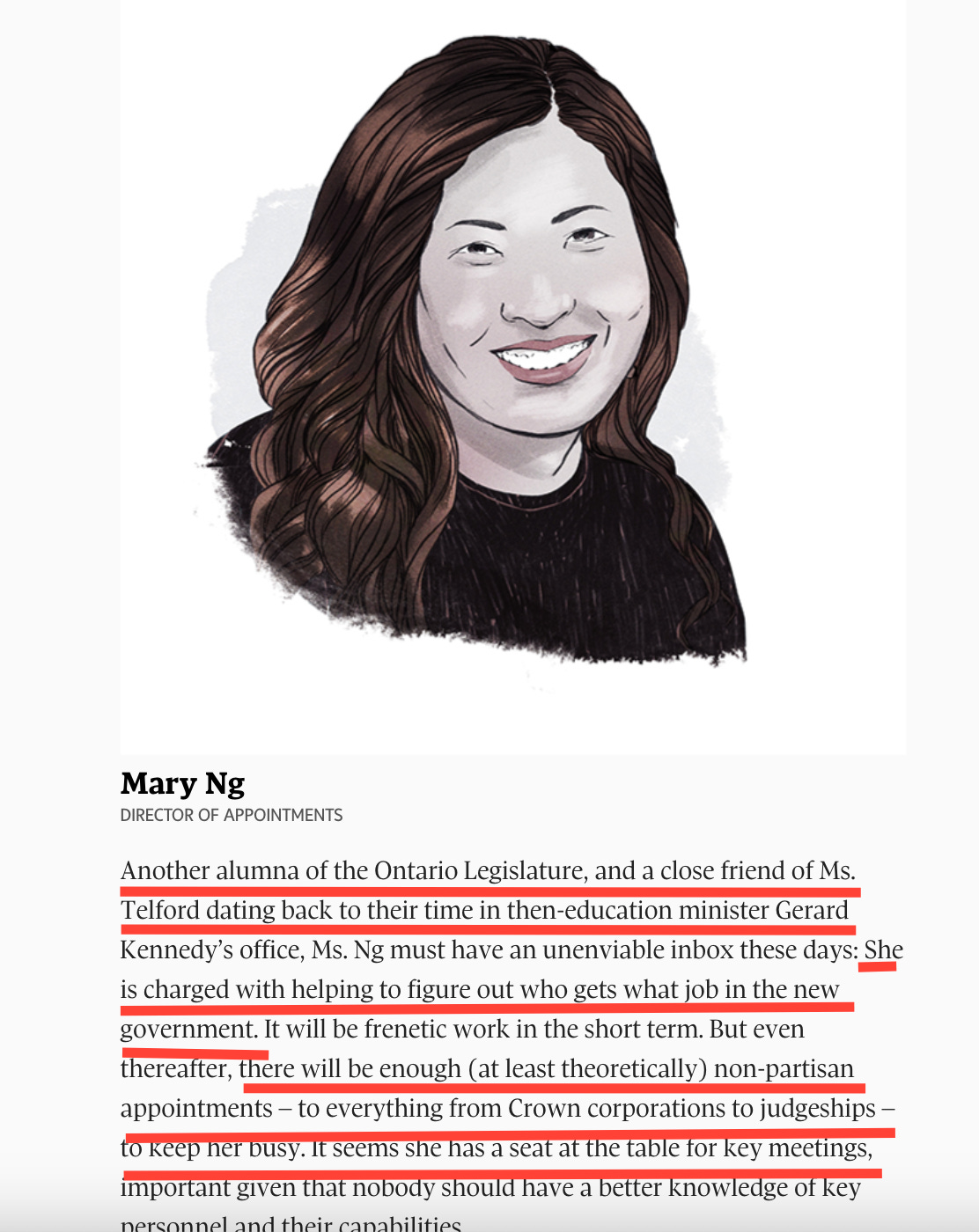
The Bureau:
You mentioned production orders. Should those apply here to track communications behind the scenes?
Alan Treddenick:
“Absolutely. Production orders for all electronic communications to and from the minister’s office are essential. I’d focus on links between those communications and people on the Van Weenen list.”
The Bureau:
I have said this seems like a Watergate-type inquiry. Would you agree that the level of investigative diligence here should be that high?
Alan Treddenick:
“Yes. Given the lapses in memory and conflicting testimonies—differences in how testimony from Marco Mendicino (Blair’s successor) treated applications versus Blair’s office—there should be a criminal investigation into this period.”
The Bureau:
Any final thoughts?
Alan Treddenick:
“I think your reporting and that of a few others has been essential. It’s unfortunate that leaks were necessary to expose this—but they were. In the inquiry, I saw bureaucratic machinery in its best—or actually worst—form.”
Editor’s note: Alan Treddenick, former senior counter-terror officer for CSIS, also worked for Blackberry on national security matters after retiring.
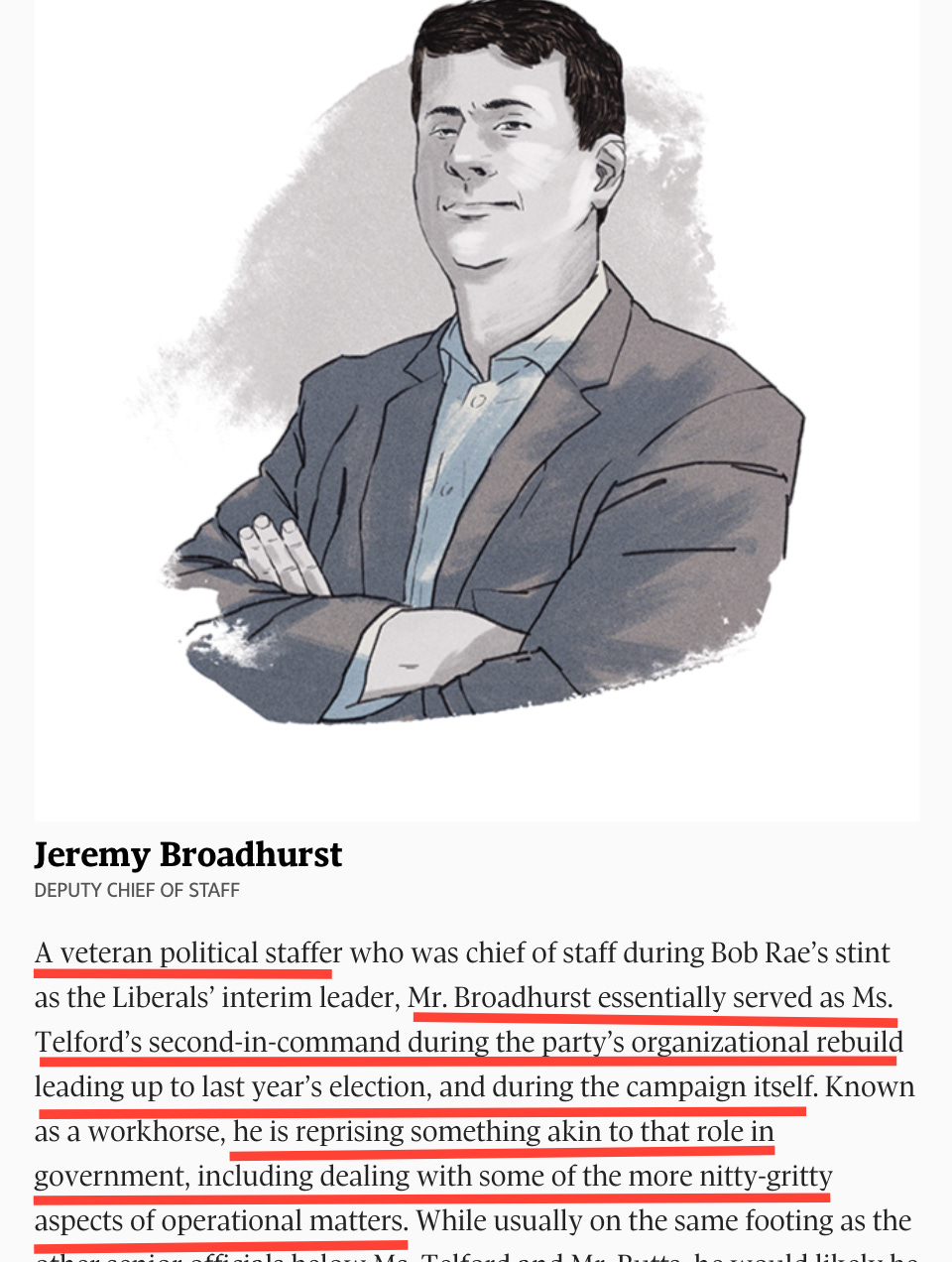





Post a Comment